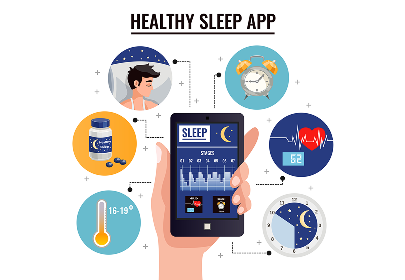Posted On May 1, 2025
How Blockchain is Enhancing Healthcare Data Security
In Traditional healthcare systems, there are several challenges such as scattered Patient records, weak data safety, poor coordination among providers, supply chain issues, and frequent data leaks. Also, problems like fraud, fake data, and misconduct in trials prevent medical research from achieving accurate and meaningful results.
Over the past decade, significant advancements have emerged in healthcare – From telehealth to COVID-19 tracking, and online appointment scheduling tools make it much easier for people to get medical care. However, with these developments, a vast amount of patients data are is now being uploaded on websites and clouds platform and third-party systems. This increase in data sharing has raised serious concern about the privacy and safety of healthcare information of patients.
Healthcare data privacy refers to effective ways of data management and protection from cybersecurity threats. In the Healthcare industry, there are certain rules and regulations which ensure that only authorised individuals can access patient data and medical records.
Despite these efforts, Healthcare data breaches are a global concern and healthcare industry has been struggling with data privacy and security concerns.
With these challenges, the need for secure, reliable, and compliant healthcare records is becoming more crucial for healthcare providers and also for the patients they serve their service.
Use of the Blockchain for healthcare data security:
Patient data, medical records, insurance claims and treatment plans need stronger secure protection than they have now and blockchain-based data storage is emerging as a powerful solution. Healthcare providers can utilize blockchain-powered storage to enhance the privacy and integrity of medical data, minimizing the risks associated with unauthorized access and breach.
How Blockchain Improves Data Security:
- Data integrity and Immutability
Blockchain works like a “chain of blocks,” that are linked together where each block store encrypted healthcare patient data. If someone tries to change even one block, the whole chain gets disrupted and becomes invalid, ensuring data Integrity.
Once data is stored on the blockchain, it cannot be easily tempered or deleted, it provides a permanent and secure record of patient information.
- Blockchain use cryptographic algorithms
Data secured by blockchain is protected by cryptographic algorithms that provide a mathematical certainty that the data cannot be breached.
Cryptographic algorithms ensure that all data added to the blockchain is encrypted and only accessible to authorized parties. This is crucial in healthcare, where regulations like HIPAA demand strict safeguards for patient information.
Whenever data is added to the blockchain, it is secured using cryptographic hashing, which gives a unique digital fingerprint for each record or transaction. Means, it cannot be read or altered without the necessary cryptographic keys. Only authorized healthcare providers and patients with the correct keys can unlock and access the data.
Decentralized network:
Blockchain is decentralized and by distributing data across a decentralized network, healthcare organizations can lower the risk of data loss by avoiding a single point of failure. In traditional centralized databases, data is stored in one location, in blockchain distributes data across a network of nodes. Each node has a copy of the blockchain, ensuring that no single entity controls the data, making it extremely difficult for unauthorized parties to alter or delete records.
Giving Patients More Control
Blockchain gives power to patients for manage their own health data. They can authorize who can see their records and when. This builds trust and helps doctors and patients work together better.
Enhanced interoperability and data sharing
Blockchain improves efficient data sharing different healthcare providers and systems by creating a secure and transparent system. This has improved the interoperability and allows for better coordination of care and reduces the risk of errors or delays.
Reducing risk of data breaches and protect from cyberattacks:
With the rise in digital health records, the risk of data breaches has become a major concern. Blockchain works in a decentralized structure, which makes it difficult for hackers to attack or access data without permission. Here data is shared across many systems and access is well controlled, it helps protect healthcare systems from cyberattacks.
Conclusions :
Using blockchain in healthcare it is a big step towards protecting patient information. Blockchain can truly change the system for the better. It brings more transparency and helps avoid data leaks or misuse.








